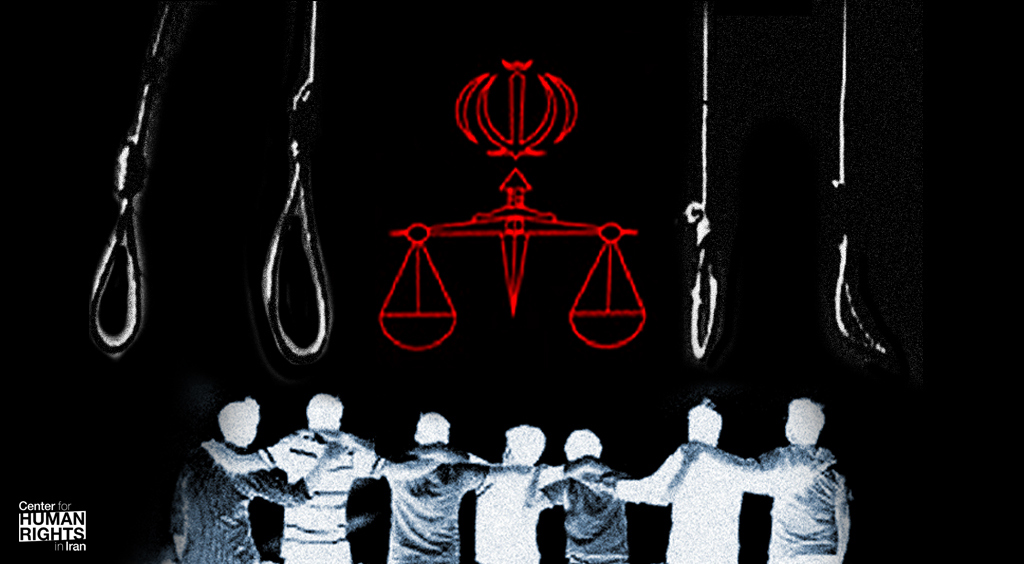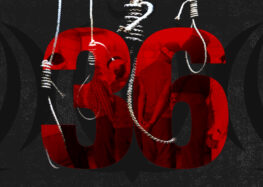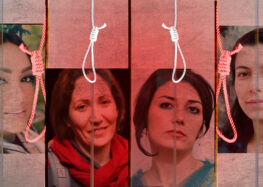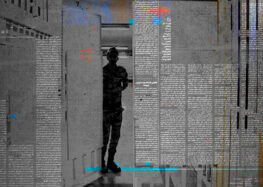Iran Protests: Juveniles Could Face Death Penalty in Kangaroo “Revolutionary” Court
 Governments, UN Must Take Urgent Action to Protect Them
Governments, UN Must Take Urgent Action to Protect Them
November 30, 2022 – At least three juveniles are among 15 individuals in the Iranian city of Karaj who are facing charges that could carry the death penalty in Iran’s “Islamic Revolutionary Court” system, which has a documented history of denying defendants due process while handing down politically motivated sentences, said the Center for Human Rights in Iran (CHRI).
“The government of Iran not only shoots children on the streets, it sends them to the gallows,” said CHRI Executive Director Hadi Ghaemi.
“None of the charges or sentences issued by Iran’s court system should be regarded as credible as long as defendants are denied lawyers of their choosing, due process is blatantly ignored, and independent observers are denied access to the courts,” he added.
“Governments worldwide, as well as UN bodies charged with protecting human rights and children, should clearly warn Islamic Republic officials that any death sentences imposed will result in severe and sustained international isolation,” said Ghaemi.
The juveniles are being tried in the context of an ongoing government-led fear campaign aimed at preventing people from joining the anti-state protests that erupted around the country in mid-September following the death in state custody of 22-year-old Mahsa (Jina) Amini.
A source with detailed knowledge of the cases told CHRI that the children have been unlawfully put on trial in the Revolutionary Court in Karaj, west of Tehran, on charges that could result in the death penalty, including “corruption on earth” and “waging war.”
The children are among 15 people who’ve been accused of being involved in the death of a member of the Basij paramilitary force, Ruhollah Ajamian, who was killed during protests in the Kamalshahr neighborhood of Karaj on November 3, 2022.
The first session of the trial was held on November 30 at Branch 1 of the Revolutionary Court in Karaj, presided by Judge Asef Al-Hosseini, who denied the defendants the right to a lawyer of their choosing and forced them to instead use state-approved lawyers.
Mizan, the official news agency of Iran’s judiciary, has also confirmed that at least three of the defendants are under 18.
At least 21 people arrested in the context of the protests which have swept Iran since September face the death penalty, according to Javaid Rehman, special rapporteur on the situation of human rights in the Islamic Republic of Iran. Rehman added that at least six have already been sentenced to death.
Elsewhere in Mashhad, Khorasan Razavi Province, a 17-year-old could also be charged with death, CHRI has learned. Mehdi Siroosi is in Vakilabad Prison for ripping up a banner of leaders of the Islamic Republic of Iran. There is growing concern that he could be charged with a crime that carries the death penalty, such as “waging war” or “corruption on earth.”
“If you haggle too much, I will write something in his file to make sure he will be punished by execution or life in prison,” an assistant prosecutor warned Siroosi’s family, according to information received by CHRI.
Juveniles Unlawfully Tried in “Revolutionary” Court System
Trying minors for murder in the “Islamic Revolutionary Court” system violates Iranian law. The cases should have been referred to the Criminal Court.
According to Article 304 of Iran’s Code of Criminal Procedure, ratified in 2013, the Revolutionary Court does not have jurisdiction over cases involving persons under the age of 18.
Also, based on the Islamic Penal Code, juvenile defendants have the right to select their own lawyer and must undergo a psychological examination to determine their level of maturity.
“The charges of ‘waging war’ and ‘corruption on earth’ are so vague that they could be leveled against any of the protesters,” a lawyer in Iran, speaking on the condition of anonymity, told CHRI.
“Most of the people who have been arrested during the recent protests are teenagers and young people who have torn up pictures of heads of government, sung protest songs, written slogans, or removed their headscarves. A clear example is [rapper] Toomaj Salehi, who has also been charged with corruption on earth for singing protest songs,” he added.
“It’s unbelievable that a number of juveniles are about to be tried in the Revolutionary Court on charges of waging war and corruption on earth,” tweeted a lawyer and law professor based in Iran, Mohsen Borhani, on November 27, adding that state-appointed lawyers are “inherently incompetent.”
According to the International Covenant on Civil and Political Rights (ICCPR) and the Convention on the Rights of the Child, it is illegal to execute someone for crimes committed under the age of 18. Iran is party to both treaties but remains one among a small handful of countries still putting juveniles to death, in violation of its treaty obligations.
At least 64 children are among the more than 455 protesters who’ve been killed since mid-September, according to the Human Rights Activists News Agency.
On November 24, the UN Human Rights Council voted to adopt a resolution that will establish an independent, international fact-finding mission to investigate the Islamic Republic’s human rights violations and serious crimes in relation to the protests that began on September 16.
UN experts have also deplored Iran’s use of death sentences against juveniles, stating that such executions were “in violation of an absolute prohibition under international human rights law.”
“Children’s lives are hanging in the balance,” said Ghaemi. “The international community must come together to take urgent and coordinated action to protect them.”
*Editor’s Note: This article was updated on December 1, 2022, to add information about Mehdi Siroosi.
Read this article in Persian






